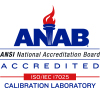 Posted on
Posted on 
In the dynamic landscape of manufacturing, understanding and optimizing power consumption is crucial for efficiency and cost-effectiveness. Voltage and current monitoring play pivotal roles in this process, providing insights into the energy usage of equipment and processes. With the advent of advanced data logging technologies, such as those offered by MadgeTech, manufacturers can now delve deeper into their power consumption metrics than ever before.
Voltage monitoring is essential for assessing the electrical potential difference across circuits and machinery. By accurately measuring voltage levels, manufacturers can ensure that equipment operates within specified parameters, avoiding potential damage and optimizing energy usage. MadgeTech’s range of voltage data loggers offers precision and reliability, enabling real-time monitoring and analysis to identify inefficiencies and optimize energy consumption.
Similarly, current monitoring is indispensable for evaluating the flow of electrical charge within systems. Monitoring current allows manufacturers to gauge the actual power usage of machinery and processes, facilitating informed decision-making for energy management strategies. MadgeTech’s diverse selection of current data loggers caters to various industrial applications, providing comprehensive monitoring solutions tailored to specific needs.
The integration of voltage and current data loggers from MadgeTech empowers manufacturers with comprehensive insights into power consumption dynamics. By harnessing the capabilities of these advanced monitoring devices, manufacturers can identify opportunities for energy savings, mitigate risks associated with electrical anomalies, and enhance overall operational efficiency.
Voltage and current monitoring are integral components of effective energy management in manufacturing. With MadgeTech’s extensive range of voltage and current data loggers, manufacturers can harness precise monitoring capabilities to optimize power consumption, drive efficiency, and maximize productivity in the competitive industrial landscape.










